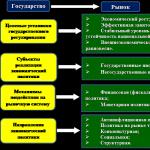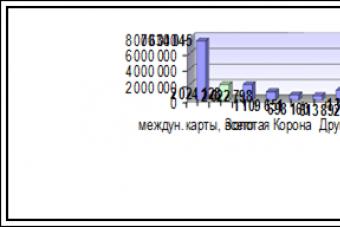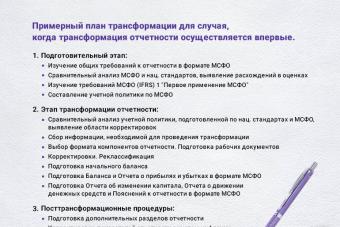The now widely known and used phrase "money does not smell" has an ancient origin. The popular expression was born during an instructive conversation between the Roman emperor and his son.
Books keep history
The history of the origin of the expression "money does not smell" has come down to our days thanks to a book called "The Life of the Twelve Caesars", which is the most valuable monument of Roman literature. Its author is the ancient Roman historian, scientist-encyclopedist Gaius Suetonius Tranquill. He was very popular, the information he collected was often quoted, and his descriptions of emperors were often imitated.
The writer captivatingly described historical events and details from the life of rulers. He detailed biographical information about them, paying attention not only to their appearance and habits, but also to the personal contribution of each to the development of the Roman Empire. The events described in the book refer to the period when Rome from a republic became an Empire.

Divine Vespasian and his love of money
One of the great emperors whose life was described by the author of the book is Titus Flavius Vespasian, who was called the Divine Vespasian. His family was not noble. When representatives of his family came to power, the empire was greatly weakened after the rebellions.
A distinctive feature of Vespasian, for which he was rightly reproached, according to the writer, was the love of money. The emperor introduced new heavy taxes, significantly increased the tribute from the provinces. I bought things only for the purpose of selling them at a profit later. Without any hesitation, he sold job seekers, and excuses to defendants, without understanding whether they were innocent or guilty. The most predatory officials, as his contemporaries believed, he deliberately promoted to higher places in order to give them the opportunity to cash in, and then sue. Many believed that he was greedy by nature.
Vespasian was the one who said "money doesn't smell". Gaius Suetonius Tranquill described this incident in his book. The son reproached Vespasian for the fact that he taxed even the outhouses. Then the emperor, taking a coin from the first profit received, put it under the nose of his child and asked if it exudes a stench. To which the answer was "no". The adage that arose later, "money does not smell," became widely used.
The Roman satirist Decimus Junius Juvenal used this story with Emperor Vespasian in his satire: "The smell of income is good, whatever its origin." Thus, he also contributed to the fact that the expression "money does not smell" is not forgotten.

Tough times call for tough decisions
Not everyone condemned the emperor for greed. Some, on the contrary, believed that the extreme poverty of the imperial and state treasury forced him to tighten the exactions and extortion. Vespasian did not hide this. At the very beginning of his reign, he declared that in order to raise the state to its feet, he needed forty billion sesterces.
And this, in the opinion of the author of the book, was similar to the truth, since the emperor provided the best use for the “badly acquired”. He was generous to all classes. Many cities that suffered from earthquakes and fires were rebuilt better than before. Showed the greatest concern for talents and arts.
Thus, behind the popular and half-joking saying "money doesn't smell" is a serious economic crisis of the ancient state and the ambiguous, but still very creative decisions of the emperor.
The words "money does not smell", which in our time have become phraseological units, mean that it does not matter how the money was earned and why this person got rich, the main thing is that there is money. Phraseologism characterizes an indiscriminate and shameless attitude to sources of income.
Nowadays, this stable expression is used when talking about dubious income obtained by dishonest and sometimes criminal means. It is used most often in relation to dishonest people who want to justify themselves. The expression is appropriate in order to emphasize the origin of funds and reproach a person for using such methods of enrichment.
Example of use in literature:
“You are a business man, you are right, of course. If it brings income… Dad always says: Money doesn’t smell” (A. Tolstoy).
History of occurrence

This popular expression has Latin roots. In Latin it sounds: Pecunia non olet (also Aes non olet).
Here is a story that has come down to our days and gave rise to this phraseological unit. Emperor Vespasian decided to tax public toilets, which did not bother him at all. However, his son reacted with disgust to this initiative and expressed disapproval during the collection of the tax. The emperor objected to him, he brought a coin to his nose and asked if there was a smell, the son answered in the negative, but this is money from urine, the emperor added.
Variations today
Nowadays, the expression has taken on a sharply negative connotation.. The expression is capacious and therefore is the basis for numerous variations on the theme of money. This idiom is very popular in demotivators and posters, as well as in popular culture, the media, and fiction. Here are examples of phrases that begin with the words "Money doesn't smell":

- but many flock to their smell.
- but then your reputation stinks.
- and maybe they smell, but you don’t have time to sniff.
- Yes, because they are washed.
- but very sorry.
Other phraseological units.
Every day, every person necessarily uses two things - a toilet and money. But few people think, and indeed know that these two things are not only interconnected, but also are the “parents”, so to speak, of the popular expression “money does not smell”. In the original, this Latin catch phrase sounds like this: Pecunia non olet (from Latin Aes non olet - “money does not smell”). Where did the phrase "money smells" come from?
The history of the appearance of this catchphrase has its roots in the distant 69-79 years of our era and is associated with Rome. During this period, the post of Roman emperor was held by a certain Vespasian. According to various historical data, this emperor was a fairly prominent state person with a number of advantages. He was distinguished, first of all, by his extreme frugality and ingenuity. Being in the role of the head of his state, Vespasian did his best to fill the treasury, in connection with which he showed his resourcefulness when introducing new taxes.
It is worth noting that during this period in Rome there was already a sewage system created during the reign of the fifth king of Ancient Rome, Lucius Tarquinius Prisca, who ruled from 616 to 579 BC. This sewer was called the Big Cloaca (Cloaca Maxima). It is worth noting that this sewer exists to this day, and even functions, however, not like all modern sewers, but as a storm sewer. Its channel is 3 meters wide and 4 meters deep. Gradually, with the development of the sewer system, public toilets began to appear (latrins - from the Latin “latrina”). The cesspool was the main channel into which sewage from city baths and public toilets was collected with the help of various branches from it. Branches were all over the city, and there were even those that collected sewage from private houses. However, the emergence of public toilets was also preceded by the beginning of the formation in civilized Europe of such concepts as “shame”, “embarrassment”, “public morality”. Thus, scientists attribute the birth of the first toilets to the Hellenistic era (323 BC - 30 AD).
During archaeological excavations in Rome, it was found that the toilet existed in almost every home. Moreover, not only on the first floors. Drainage sewer pipes made it possible to build toilets even on the second floors of residential buildings. In addition, public toilets also began to appear, because civilized people have already grown to the level where they began to understand that not all things should be available for public viewing, and besides, there are some things of a hygienic and intimate nature that require a separate room. The very first public toilets appeared in gymnasiums (schools where physical education was taught, hence the name of the famous sports discipline - “gymnastics”) and were installed in order to maintain personal hygiene and sanitation. Public Roman toilets were notable for their sufficient comfort. They were equipped with marble seats, and also connected to a fairly developed plumbing system - sewage was washed away by a stream of water, first into the Tiber, and then into the Mediterranean Sea.
Who said money doesn't smell?
Having come to his power, Vespasian decided to impose a tax on Roman latrines - latrines, i.e. public toilets. This tax was called the cloacarium. Since the idea of \u200b\u200bpaying for public toilets belongs to Vespasian, it is believed that it was he who said the expression known to everyone today "money does not smell." It is unlikely that he uttered this phrase verbatim; no one can verify this today. However, there is some written evidence that Vespasian is the author of this winged expression. For the first time this expression is found in the work of Gaius Suetonius Tranquill "The Life of the Twelve Caesars", but this phrase is not given there in the form of a direct speech of the Roman emperor, but the situation is described as follows.
The son of Vespasian Titus reacted negatively to this decision of his father and condemned him for getting to the outhouses and even taxing them. Some time passed, and the cloacarium gave a significant increase to the state treasury. Then, when this money was received, Vespasian had a conversation with his son, during which he took one coin from the first profit, brought it to his son's nose and asked him if he smelled an unpleasant smell. Titus' answer to the question was "no". Hearing this, the emperor said - "But still it is from urine."
To date, this catchphrase is known to absolutely everyone and is interpreted as follows: the money was not earned in a completely clean or honest way.
Tax on public toilets
In the 70s of our era, Emperor Titus Flavius Vespasian Sr. ruled Rome. The civil war that had just ended ruined the treasury and the ruler had to look for new ways to replenish it. Vespasian decided to impose a tax on public toilets. It is no secret that in those days baths and toilets, in addition to their direct purpose, were also centers of public life, the townspeople went there to talk and exchange the latest news. In addition, the Romans were so accustomed to marble public toilets that they had to pay tribute. There is a legend that the son of Vespasian Titus reproached the emperor for the ignoble origin of money. Then the emperor brought the coins to his son's face and asked what they smelled like. Titus replied that nothing. To which Vespasian retorted: “Strange, but they are from urine!”. This is where the famous expression “money doesn’t smell” comes from.
tax on cowardice
In the XIII century, the English king John Landless after another war with the French, which ended ingloriously for the British, returned home. The treasury was empty, and the king was angry at the defeat. Then he ordered in 1214 to introduce an exorbitantly high tax for the barons who refused to take the side of the king in this military campaign. From each knightly fief, he ordered to collect three marks, that is, more than 40 shillings in silver. This marked the beginning of the resistance of the English nobility. The northern barons rebelled first. Dissatisfaction with the king's policies grew, and as a result, the barons renounced their vassal allegiance to John. The king was powerless and entered into negotiations with the rebellious barons. The result was the signing of the Magna Carta.
Sparrow tax
No matter how strange it may sound, but such a tax really existed in Germany of the XVIII century. In Württemberg, since 1789, by decision of Duke Karl Eugene, they charged money for these small birds. Sparrows destroyed crops, so the owner of each house had to kill 12 pests, for which he was paid 6 kreuzers. Those who refused to chase birds were obliged to pay 12 kreuzers to the state. In consequence, this even led to an underground trade in dead sparrows.
beard tax
Everyone is well aware that in 1689 Peter I introduced a tax on beards. The sovereign wanted to make Russia more European and started with the appearance. Beards were divided into several types - boyar, peasant, merchant, etc. A peasant could wear a beard in the village, but when entering and leaving the city he had to pay 1 kopeck for it. Merchants paid 60 rubles a year, large and foreign merchants 100. Peter ordered bearded men to walk in clothes with a standing collar, so that they would be uncomfortable, and if someone walked in a different vestment, then a fine was imposed on him. Those who could not pay the debt for a beard to the state were sent to hard labor. Then Peter got tired of fighting beards and simply forbade them.

Window tax
In 1696, a window tax was introduced in England. Glass windows, due to the high cost of glass, were available only to wealthy segments of the population, so the duties introduced by King William III, in fact, were a luxury tax. The tax was not introduced for every window: the owners of houses with 10-14 windows paid one amount, with 15-19 windows - another. Between 1747 and 1808 the tax was raised six times. It was very easy to assemble because the windows are perfectly visible from the street. Such a law had an impact on the culture and architecture of England, houses began to appear in which window openings were bricked up. Some houses had no windows at all. British doctors complained about this, since damp apartments without light and fresh air were an excellent environment for the spread of various diseases. The window tax was abolished only in 1851.

tax on life
It would seem that what cannot be forced to pay for is the very fact of your existence. However, the English monarchs would argue here. For example, in the XIV century, King Edward, shortly before his death, introduced a poll tax - it was levied on every person over 14 years old at 4 pence a year. England was devastated by the war with France, so the government was looking for new ways to get income. In addition, the power went to the 10-year-old Richard II, whose entourage more than once put their hand into the royal treasury. Then the young ruler asked Parliament to raise the poll tax. English society was divided into 7 classes, of which wealthier citizens paid higher taxes. There was a fine for non-payment. As a result, the king's reckless financial policy, constant wars and the disastrous economic situation of England led to Wat Tyler's peasant uprising, which swept almost the entire country.
Bicycle tax
In 1910, in Simbirsk, the City Duma passed a law according to which each owner of a bicycle had to pay 50 kopecks to the city. Cyclists received a book with the rules of the road for this. For example, they were forbidden to ride on sidewalks, gardens and parks, and also to drive in large groups around the city. Each bike also had to attach a license plate.
The smell of money
Nowadays, there is hardly a person who has not used or heard the expression - “ money doesn't smell". Many of us, having heard this expression for the first time, sniffed the bills and noted that they still smell. Where does this expression come from?
The origin of the expression "money does not smell"
“If you don’t like to carry work all the time
In the camp, if your stomach weakens from the sound of a trumpet,
The sound of the horns, then engage in trade:
stock up what can be resold at half the price,
but just do not disdain any product,
even if I had to hide it behind the Tiber,
And don't think there's any difference between
Raw skin and perfume: the smell is good, after all ”
Unless Juvenal repeated the idea contained in the anecdote about the Roman emperor Vespasian. Here is what he said in "Life
twelve Caesars" by Gaius Suetonius Tranquill:
“Titus (Titus Flavius Vespasian - the Roman emperor from the Flavian dynasty, who ruled from 79 to 81) reproached his father (Vespasian) that he also taxed the toilets; he took a coin from the first profit, brought it to his nose and asked if it stinks. “No,” answered Titus. “But this is money from urine,” said Vespasian.
Since then winged Pecunia non olet expression(“money does not smell”) and is attributed to the Roman emperor Vespasian, who lived in the first century AD and laid the foundation for the Flavian dynasty.
Synonyms for "money doesn't smell"
If we approach phraseology primitively, then “money does not smell” means promiscuity in gaining wealth: “In another time, Koreiko himself would have bought such an amusing little book, but now he even grimaced in horror. The first phrase was underlined in blue pencil and read: "All the great modern fortunes are acquired in the most dishonorable way." (Ilf and Petrov "The Golden Calf", Chapter 10, "Telegram from the Brothers Karamazov"). In fact, the expression has a deeper meaning.





